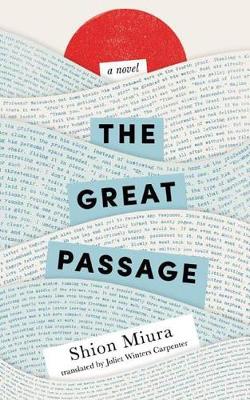Reviewed by sa090 on
───────────────────
Going from one version of a story to another can be a tough experience if there are too many differences between them, especially if they’re being handled in different mediums. My first encounter with the Great Passage happened in the anime Fune wo Amu which I absolutely loved and what I still consider to be the best new anime of 2016 and I really hoped that one day I’ll get to read its source material in the original Japanese. Sadly, while I speak the language moderately, I still have zero knowledge about the writing or reading of the language so I had to rely on the translated version and it wasn’t bad at all.
It felt like I went back to 2016 when I saw Majime and his colleagues work on the Daitokai, passionate and definitely interesting. The main things I enjoyed in this novel is the passion of the characters and of course, the length Miura-sensei actually went to show the process flow for someone who doesn’t know how writing and publishing dictionaries actually happens. More importantly, it gives some insight on how a person needs to be by nature to excel in a job like this. That being said though, it doesn’t focus on one type of character. For instance, Majime and Nishioka are like heaven and earth in the differences between them, but both are working on the project and better yet, Miura-sensei gives them jobs that suit them.
There are quite a few characters around and while it might take some time to get acquainted with them, they do end up having their own voices by the end. The main focus of the book is the making of the dictionary, making the characters very memorable (other than the very main ones) never felt like a big priority. Miura-sensei spent more pages explaining how one word can be applied in multiple situations, like the work “Right” for example, before she even attempted to expand on the characters. Does it work though? Yes, it does in this type of book. It establishes the mood that the characters will really be only focusing on this dictionary and it’s actually pretty interesting to see how many definitions or applications one word can have.
The fact that the Japanese applications of the words was still kept in the translations is something I really appreciated. There were also a couple of times where I was really amused by the conversations between the characters, which I’m not sure if it was Miura-sensei’s actual writing style or the work of the translator, Juliet Winters Carpenter. Regardless though, I enjoyed that part a lot.
All of that being said, I do believe that anything handling a process of sorts is better “seen” than “read” or “heard” and with books like these especially, it is a lot more fun to watch Majime, Araki, Nishioka and the others scramble everywhere try to get this dictionary published. I wish I read this one first to be honesty, because reading it after the anime makes it somewhat less entertaining than it might’ve been, but in the end I think I got something new out of it as well :)
Final rating: 3/5
Reading updates
- Started reading
- 25 March, 2019: Finished reading
- 25 March, 2019: Reviewed
